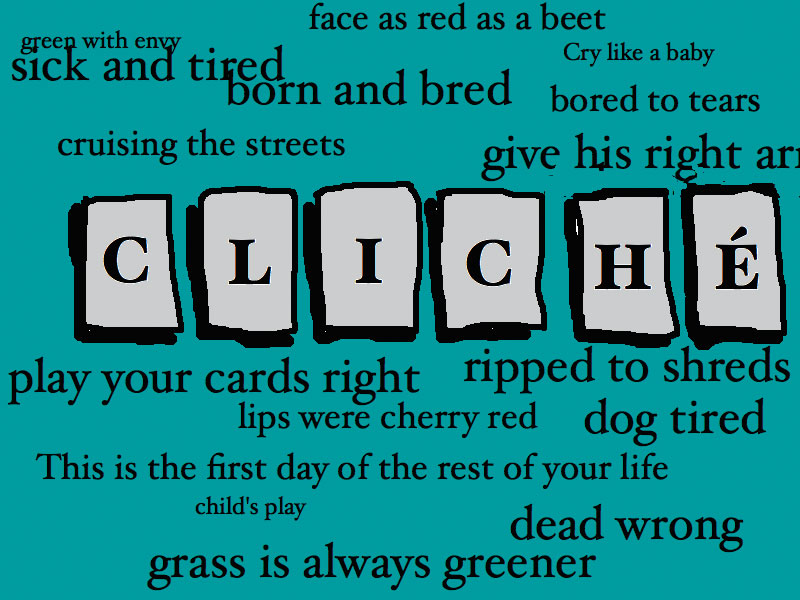
At some point of time all clichés were excellently worded phrases. In fact, so well-liked that they were overused, moving gradually to the category of disliked axioms – Roopa Banerjee
A cliché is a phrase, idea or expression that has been overused to the extent that it loses its original meaning and uniqueness. Sometimes, events or occasions that are predictable are also referred to as clichés.
The word cliché has its origin in the French clicher, meaning ‘to click’ — the clicking sound made by a printer’s metal stereotyping plate. Thus, it implies lifting and reproducing something unchanged and is a good metaphor for clichéd writing abounding in worn out and much too used phrases.
It’s pertinent to note that at some point of time all clichés were excellently worded. In fact, they were so good and liked that they were overused, moving gradually to the category of tired disliked axioms. ‘In the nick of time’ and ‘only time will tell’ were surely refreshing phrases at the time of their origin, but today they are clichés. The French poet Gérard de Nerval rightly declared: ‘The first man who compared a woman to a rose was a poet, the second, an imbecile.
However, not all phrases oft used are categorised as clichés. ‘I now pronounce you man and wife’ and ‘I do solemnly swear’ are frequently used but are, by no means, clichés. Nor is ‘Happy Birthday’!
Many common similes are now clichés. Writing or speaking about something being ‘as swift as a cheetah’ or ‘as cunning as a fox’ is trite.
But clichés are not the sole horror of the written world. Movies and films abound with them. For instance, the hero being able to shoot down bad guys precisely while villains miss every time is one of the worst movie clichés. Every Star Wars fan has wondered why all the stormtroopers miss almost every shot. Cars never start on the first try in an escape and a film shot in Paris has the Eiffel tower seen from every window. These are clichés that make eyes roll every time.
English literature has given us numerous literary gems that have become clichés. The famous lines from William Shakespeare’s Romeo and Juliet: ‘A rose by any other name would smell as sweet’ as well as ‘All that glitters is not gold’ from Merchant of Venice now have a dubious reputation. Similarly, Shakespeare would be sad to see ‘Jealousy is the green-eyed monster’ from Othello has moved to the cliché world.
Some story plots can be cliched, too. For example, an orphan growing up to conquer all evil is a fantasy cliché. That is not to say that no clichés work in the publishing or film world. Harry Potter is a fine example of a fantasy plot cliché which resonated with readers. In addition, there are character clichés. For instance, a plain Jane who suddenly becomes glamorous before the denouement and marries the man of her dreams. Then, there are setting clichés where rain and thunderstorms accompany the protagonist’s emotional struggle at the climax of a film.
The next time you grit your teeth when you hear someone say ‘It’s raining cats and dogs’ or ‘Beauty is only skin deep,’ remember the words of Samuel Goldwyn, the Polish-American film producer: ‘Let’s have some new cliches.’
Quiz
Here are some famous clichés from literature. Identify the book they are taken from and name the author as well:
1. Big Brother is watching you
2. Though this be madness, yet there is a method in it
3. Melted into thin air
4. It was a dark and stormy night
Answers:
1. 1984 by George Orwell
2. Hamlet by William Shakespeare
3. The Tempest by William Shakespeare
4. Paul Clifford by Edward Bulwer-Lytton
Also read: The irony of it